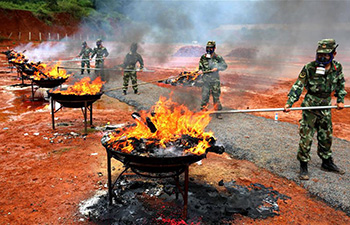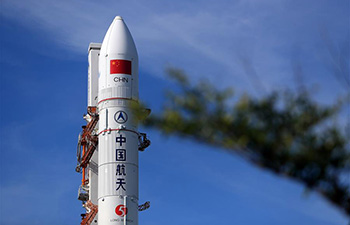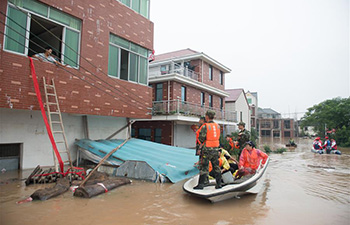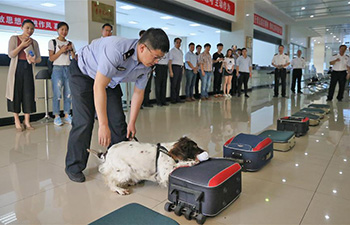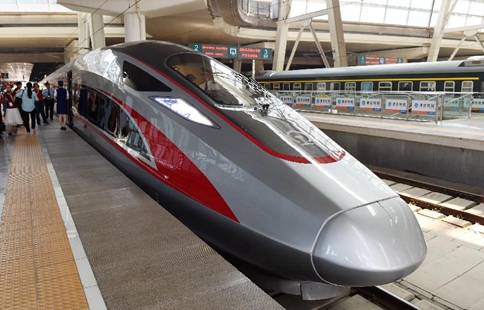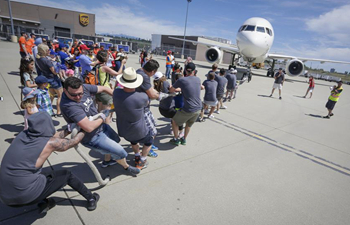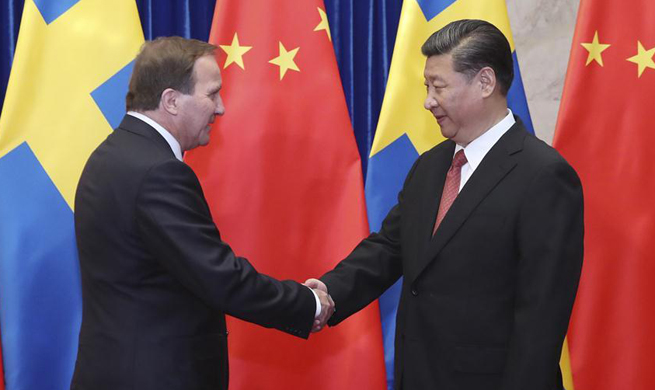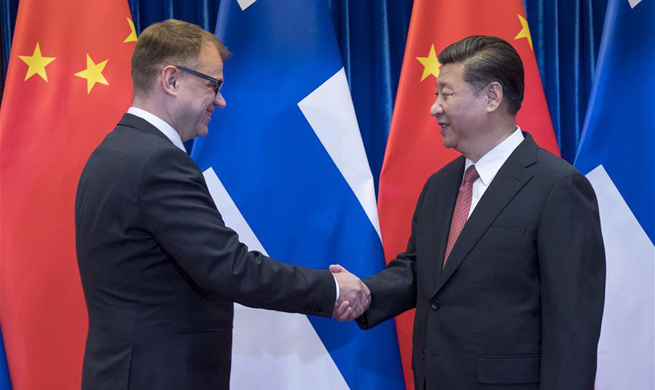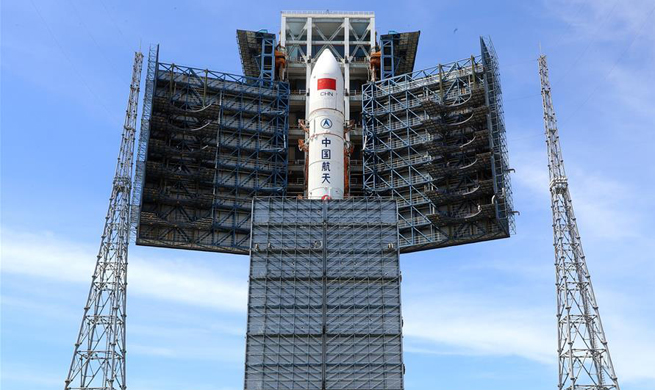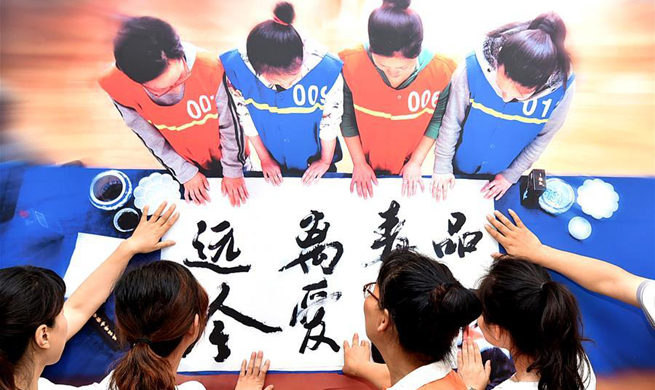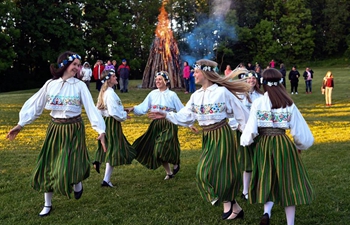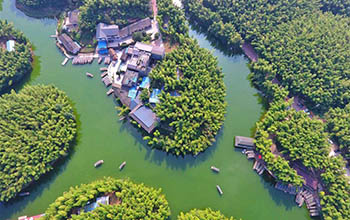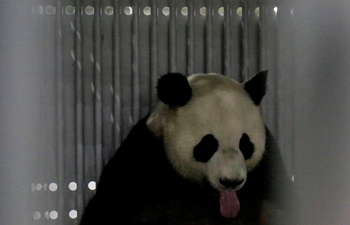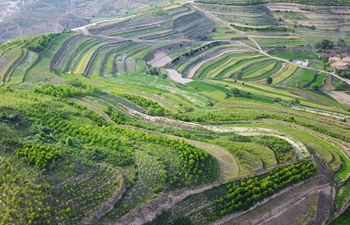by Ronald Ssekandi, Samuel Egadu
KAMPALA, June 26 (Xinhua) -- African leaders will next month gather at the African Union (AU) headquarters in Ethiopia to adopt proposals that the continent gets two permanent seats at the UN Security Council.
Alpha Conde, Guinea President and also chairperson of the African Union (AU) told reporters here over the weekend that Sierra Leone's President Ernest Bai Koroma will present the proposals when the Heads of State meet July 3-4.
"It's no longer rhetoric. A decision shall be taken and we shall act on it. AU needs two permanent seats in UN Security Council and the number of non-permanent countries increased," said Conde on a two-day state visit to Uganda on Saturday.
AFRICA'S POSITION
In 2005, Africa established a united position (Ezulwini Consensus) on UN reform calling for the inclusion of two permanent and five non-permanent seats for African countries on the UN Security Council and extension of veto powers (should they remain) to new permanent members.
Africa argued that in 1945, when the UN was being formed, most of Africa was not represented and that in 1963, when the first reform took place, Africa was represented but was not in a particularly strong position.
The continent now argues that it should be fully represented in all the decision-making organs of the UN, particularly in the Security Council, which is the principal decision-making organ of the UN in matters relating to international peace and security.
Africa among others also demands that the AU should be responsible for the selection of Africa's representatives on the Security Council.
Russia, Britain, China, France and the United States are currently the five permanent members of the Security Council with the power to veto resolutions. The other 10 are non-permanent members.
Since the adoption of the Ezulwini Consensus, African leaders have been carrying out shuttle diplomacy seeking allies across the globe to support the continent's position.
According to Uganda's foreign ministry, as the world lobbies Africa, Africa is also lobbying them to accept its position.
Ugandan President Yoweri Museveni in 2015 traveled to Japan, which is also calling for reforms at the UN. Museveni argued that a small group of countries should not monopolize decision making for the whole world.
Speaking at a function on October 1, 2015 at the Chinese embassy here, Museveni hailed China noting that it is careful not to give lectures and sticks to the UN principle of non-interference.
He was speaking in reference to Western powers dictating to African leaders on how to manage their countries.
Zhao Yali, Chinese ambassador to Uganda then argued that China will never seek hegemony or expansion no matter how strong it becomes.
AFRICA'S DESTINY
Conde and Museveni at the weekend presser argued that Africa must be in charge of its own destiny and not necessarily follow external dictates.
Museveni said African leaders should push for non-sectarian tendencies to avoid conflicts and confrontation in situations where there are problems.
Conde said African leaders need to speak openly and frankly so that when Africa speaks, it does so with one voice that is heard.
"You don't have to be super intelligent to know that the problem faced by Africa is interference in its affairs. We need to use our own resources to fund our organization (AU) ourselves. Currently our main funding is by the European Union. How can you speak freely if you are funded by someone else?" Conde said.
He said there is a new dynamism in Africa that will propel the continent to realize its vision.
He said during the forthcoming AU summit the leaders will discuss various issues including conflicts in Libya, Democratic Republic of Congo (DRC), South Sudan and Mali as well as the UN operations in Africa.
On the situation in Libya, Conde said AU's goal is to stop the crisis.
"It's not easy but it has got to be done. We must find a solution. It's like a cancer, if we don't solve it, it will spread to the rest of Africa," he said.
Conde criticized the deployment of UN peace keeping troops in Africa noting that they have failed to end conflicts. UN troops have been deployed in DRC, CAR and South Sudan.
He cited the deployment of over 20,000 UN troops in DRC but fighting has continued leaving thousands of people dead and others fleeing to neighboring countries.
He said Africa is planning to set up its own force to intervene in case of violence or war.
"We don't want foreign intervention in our affairs. All the conflicts in Africa must be solved by Africa. Now we aim to have African troops to respond," said Conde.
"We need to take issues in our own hands and resolve them by ourselves. We must take destiny into our hands," said Conde.




